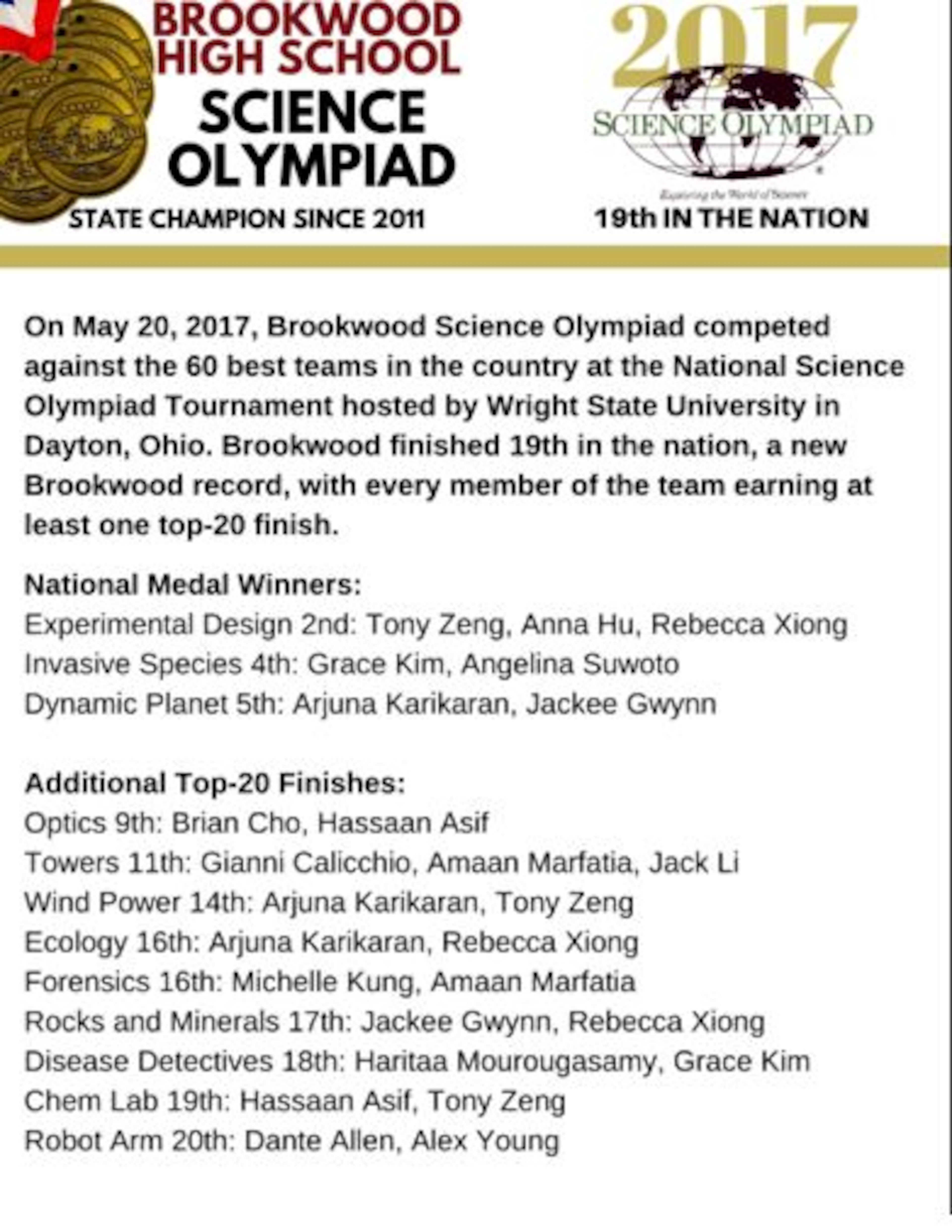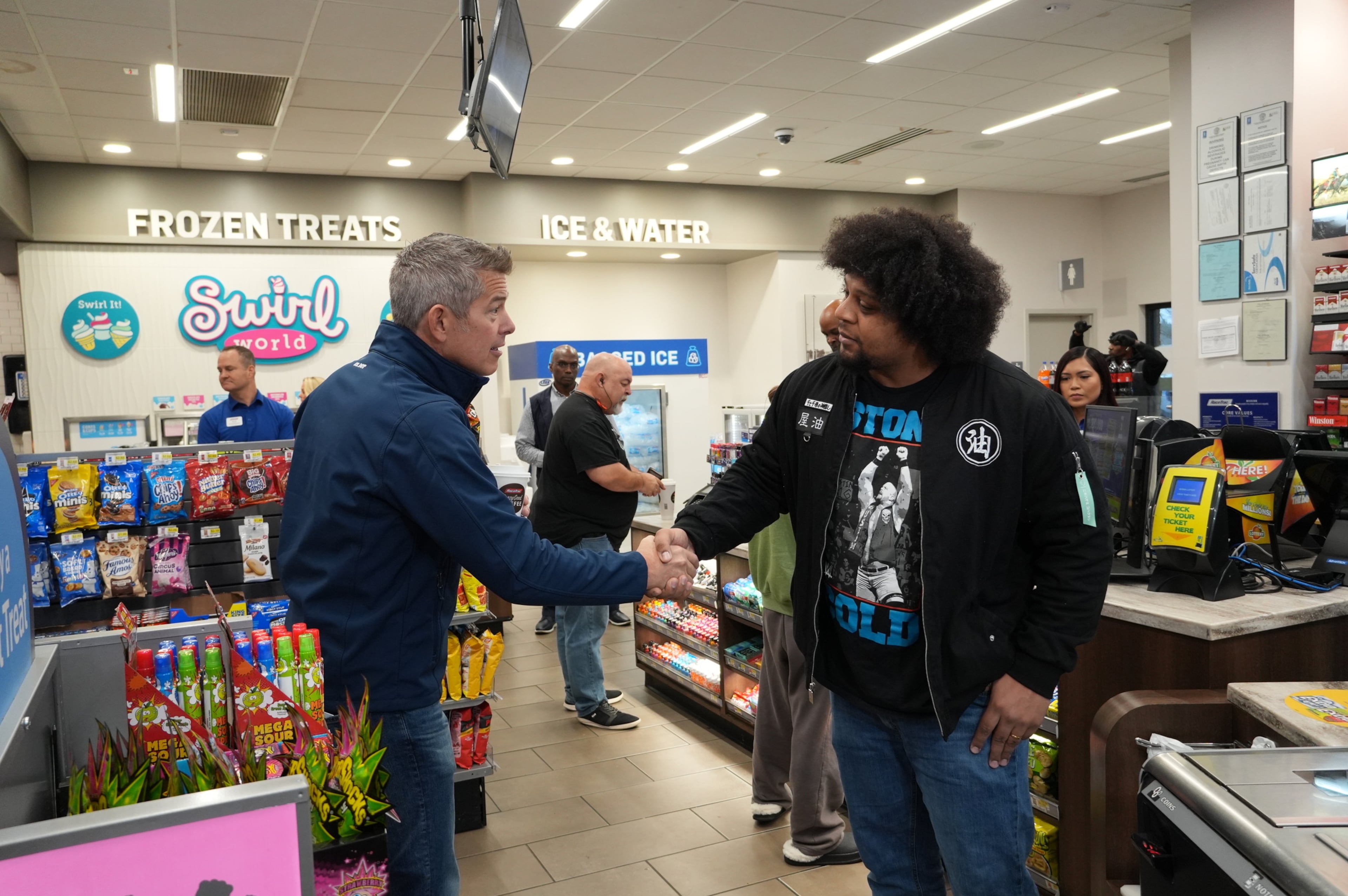Great Georgia teachers: Brookwood High's Carrie Settles Livers makes science real, relevant

University of Georgia professor Peter Smagorinsky has written many profiles of great Georgia teachers for this blog. Here is his latest profile of a Georgia teacher making a difference: Brookwood High School teacher Carrie Settles Livers.
By Peter Smagorinsky
This month, scientists reported the permafrost in some of Planet Earth's most frigid regions is melting a catastrophic rates. According to scientist Max Holmes of the Woods Hole (MA) Research Center, the rapid disappearance of this ancient layer "has all kind of consequences both locally for this region, for the animals and the people who live here, as well as globally."
Although some readers will scoff at the idea the earth is heating up and people can do something to reverse it, that skeptical view is held by few scientists. As the son of an atmospheric physicist, I'm going to side with the people in the lab on this one. That's why I think the world, and Georgia schools, are better places because of teachers like Brookwood High School's Carrie Settles Livers, a warrior in conservation and environmental integrity, the co-chair of Brookwood's Science Department, and a great Georgia teacher.
Carrie arrived at Brookwood in 2010. I'm proud to learn she got her initial degree in biology at the University of Georgia. She's since earned a master's degree in science education at Georgia State and an educational specialist degree in instructional technology at Kennesaw State. She's the pride of multiple institutions of higher learning, and is making science matter with high school kids in Gwinnett County.
With the earth’s temperatures on the rise, the world’s population is in need of alternative, renewable energy. Carrie has been teaching about solar power and other energy sources throughout her career as a teacher of physics and environmental science classes. This work has earned her Brookwood High’s Teacher of the Year award, recognition as a semi-finalist for Gwinnett County Public Schools Teacher of the Year, the Georgia Science Teachers Association Science Teacher of the Year, and an honorable mention for the Presidential Innovation Award for Environmental Educators. Let’s take a look at what this accomplished teacher does to advance her students’ knowledge about the state of the planet.
To assist with making her classroom a stimulating place of learning, Carrie has partnered with SunPower for Schools, a Georgia-based, nonprofit, renewable energy program that generates power through green resources such as low-impact hydroelectric plants, biomass, landfill gas, and solar energy. SunPower provides lessons plans and real-time data to gauge the energy potential of solar power in Georgia, and Carrie recently participated in a solar energy workshop in Savannah with them and brought the workshop to her own cluster at Brookwood. She's also worked closely with Walton EMC (Energy Made Clean) executive Scott Walker to stimulate ideas about energy-related projects.
Once school is done, Carrie keeps working as the faculty sponsor of Brookwood’s Outdoor Club, through which she takes her students on a field trip to the Georgia Coast to study coastal ecology every year. She has also been a co-sponsor, along with a host of Brookwood colleagues, of a science team that has won the Georgia State Science Olympiad annually since 2011.
Along with teams from Chattahoochee High Walton, and the Gwinnett School of Mathematics, Science, and Technology, they represented the state of Georgia in the National Science Olympiad at Wright State University in May. They finished 19th nationally, with a boatload of individual performances (see below) that justify the investment in both the kids and the faculty, whose dedication of time and expertise helped them compete in this national arena.

Carrie has not only devoted time to teaching and extracurriculars. She's worked hard to raise money to support her students' learning. Most recently, she was awarded a $35,000 grant from the 3M Corporation that funds a project designed to promote environmental stewardship, connect STEM education and nature with outdoor learning opportunities, and involve students from underserved communities in environmentally responsible living. As she said at the time of the award, "Our students not only get to learn about sustainable agriculture and giving back to those less fortunate, but they also get to experience the emotional response that comes along with actually doing so."
Attending to the emotional side of science, I believe, is critical to her success as a teacher. STEM is often presented as fundamentally rational and analytic and unadulterated by emotion. Yet applied science affects how people feel about their world. Students' emotional engagement with school, I have argued, is essential to successful teaching and forming school communities, an aspect of Carrie's teaching that merits recognition and appreciation.
Carrie's 3M grant will allow her and her students to construct an Aquaponics lab designed by HATponics , Inc. that will teach kids about sustainable agriculture. Just learning the science, however, isn't enough for this remarkable woman. The grant also includes community outreach by providing food to local co-ops.
“I am probably most excited about the humanitarian component to this adventure,” Livers said. “I think one of the best ways to ‘trick’ students into learning, is to help them find something to be passionate about. Helping to design this lab, trouble-shooting in the lab, and designing extensions of this lab that could possibly work in developing countries, is a great way to flex those critical-thinking muscles.”
But her teaching day isn't over yet. Carrie has also helped launch a fundraiser through her AP Environmental Science classes to provide families with UZimafilters.org water filters, built at low cost and effective for five years. These filters are designed to keep plastic out of landfills and provide fresh, drinkable water from home taps. I doubt if Carrie is done finding ways to teach kids about environmental responsibility and extend that knowledge into practical action that contributes to a cleaner ecosystem for us and our descendants to occupy.
Teachers and schools get a bad rap these days. Our new secretary of education believes only charter schools and vouchers can save us from the miseries and stagnation of public education. Carrie’s work, however, belies the belief schools are stagnating. With teachers like her, they are demanding, motivating, fulfilling places where teachers and students have daily opportunities to grow.
In addition to the scientific stance she has taken on ecological responsibility, Carrie goes above and beyond her contractual obligations to make learning real and relevant. There are many great teachers doing what they can within continually reduced budgets to provide kids with an education steeped in knowledge, civic engagement, and the extension of school learning into community life.
Carrie Settles Livers is among those great teachers who should make all Georgians proud. We have many of them, and featuring her, I hope, illustrates the sort of dedicated teachers this state is so fortunate to have, and encourages readers to view their schools with pride and advocacy.


